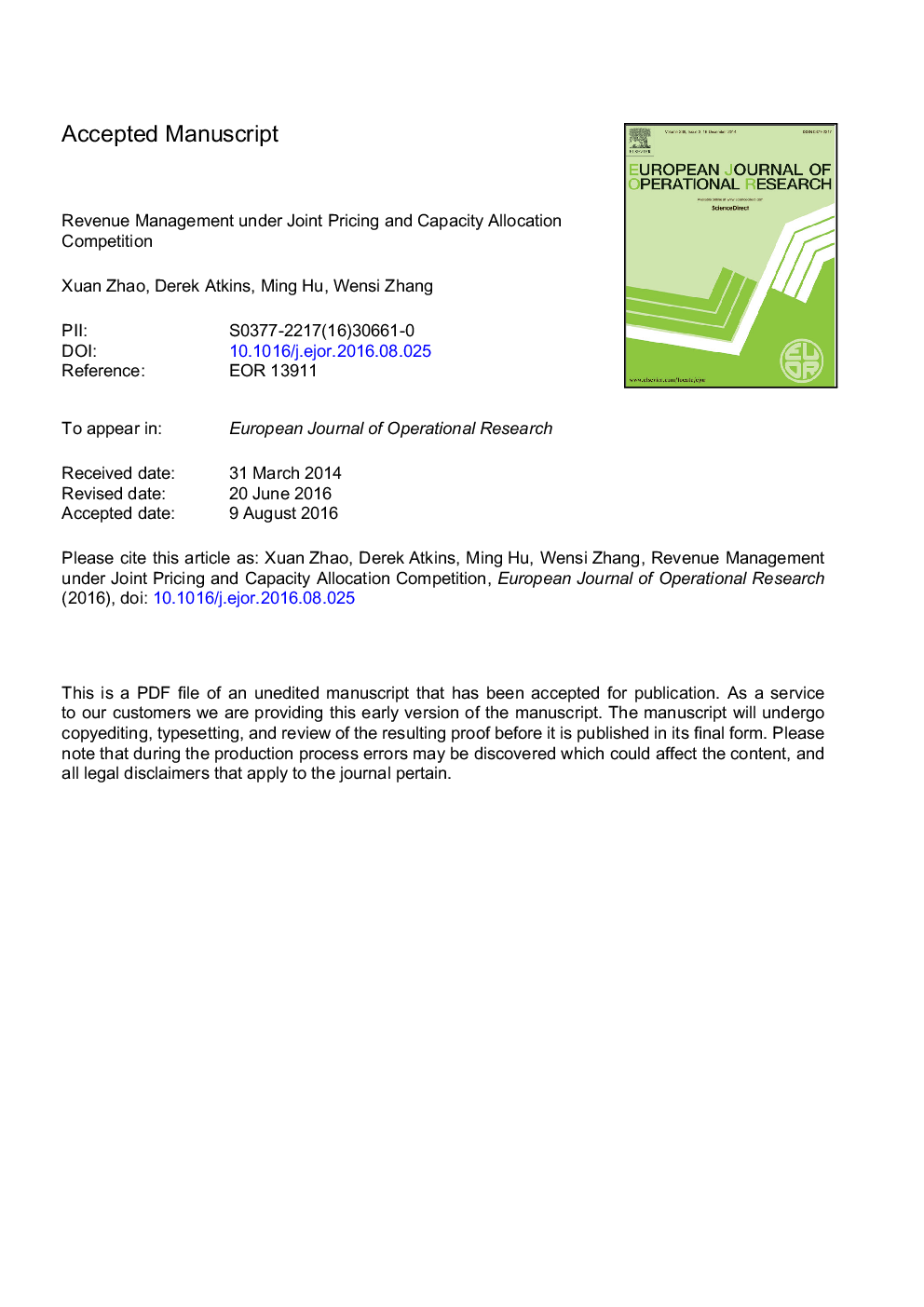ترجمه فارسی عنوان مقاله
مدیریت درآمد تحت رقابت رقابتی قیمت گذاری و رقابت
عنوان انگلیسی
Revenue management under joint pricing and capacity allocation competition
| کد مقاله | سال انتشار | تعداد صفحات مقاله انگلیسی |
|---|---|---|
| 113946 | 2017 | 36 صفحه PDF |
منبع

Publisher : Elsevier - Science Direct (الزویر - ساینس دایرکت)
Journal : European Journal of Operational Research, Volume 257, Issue 3, 16 March 2017, Pages 957-970
ترجمه کلمات کلیدی
نظریه بازی، تخصیص ظرفیت، قیمت گذاری، رقابت، تخفیف اولیه،
کلمات کلیدی انگلیسی
Game theory; Capacity allocation; Pricing; Competition; Early discount;

